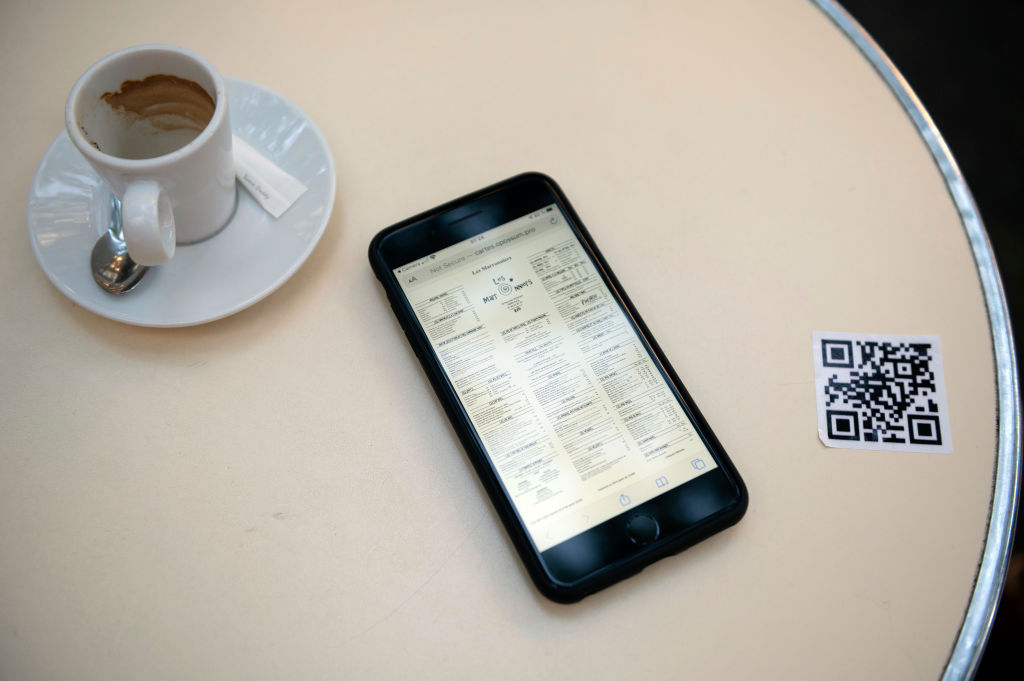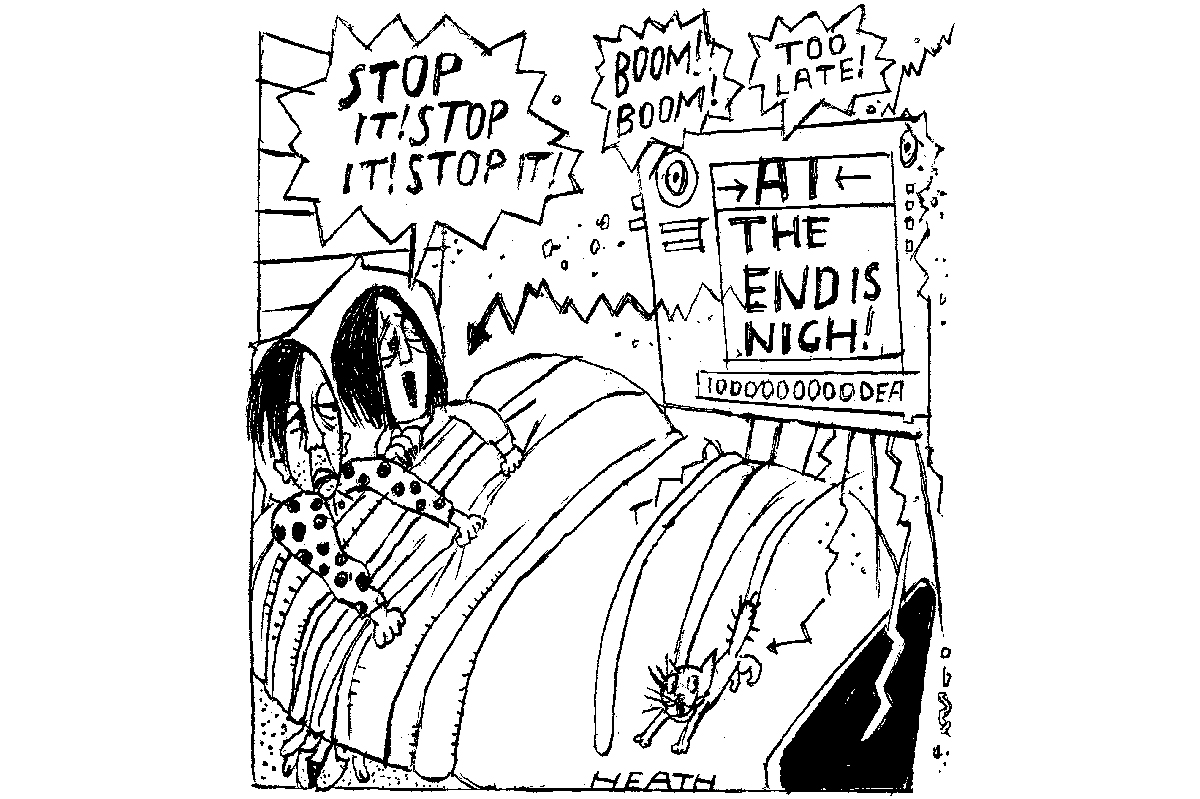Arlington, Virginia
Wandering through suburban Washington, DC’s National Airport — I always liked the libertarianish ex-congressman from South Carolina Mark Sanford for voting against renaming it Ronald Reagan Airport on the grounds that the nomenclatorial decision belonged to locals, not Congress — I was refused service when trying to buy a bagel. It wasn’t because of my race, gender or vaccination status; rather, the eatery in question, which had no cash registers, accepted orders only from smartphones. As I have never owned a cell phone of any kind, let alone a smartphone, I was outta luck.
I couldn’t plead food insecurity, to borrow the silly euphemism of our day, for soon enough I would be dining on the nine almonds that constitute an airline repast. But still, those of us who from principle or poverty refuse to spend our days caressing the wretched rectangle are fast being reduced to second-class citizenhood.
I’m no purist on the phone question. Most people I love use cell phones, and the fact affects my affection for them not a whit. I understand the utility of these devices for those who labor in numerous jobs, among them tow-truck operator, surgeon and prostitute. (Excuse me: sex worker.)
Sure, they’re a social pox and a contributor to a collective mental-health profile that makes our country’s young female population resemble a nuthouse of prosaic Sylvia Plaths, but to object to their ubiquity is, I am told, grousing about the inevitable. As Robinson Jeffers wrote, “Be angry at the sun for setting / If these things anger you.”
Well, we seldom see Old Sol during an Upstate New York winter, so please indulge my whining. (My wife has become absorbed in the Meghan and Prince Harry story to the extent of watching British newscasts and podcasts on the ditzy duo. If I whine to her about smartphone segregation, she now accuses me of “whingeing.”)
This may seem a mere side issue in our delirious day, when the chickenhawks of the US foreign policy coop flirt with nuclear war and moody teenagers are encouraged by the corporate media to mutilate themselves, but altering the most basic and routine patterns of daily life can have profound consequences. Must these damned things be required to engage in even the simplest transactions?
In Phoenix the other day, I learned that at many restaurants one must ask for physical menus, the assumption being that any self-respecting diner will access the bill of fare from one of those Rorschach-dot QR-code splurts pasted on your table. On the same outing I discovered that the entire Buffalo airport is now “cashless.” I couldn’t even buy a newspaper with greenbacks. My money was no good there.
After a missed ground connection on a recent trip — try finding a working pay phone in an American airport these days! — I’ve taken to borrowing my father’s flip phone when I fly, but of course this by-now primitive device cannot download menus or execute bagel orders.
In the very week of my latest round of airport indignities, the avaricious automata of Major League Baseball announced that in 2023, balls and strikes at the Triple A level of the minors will be adjudicated by robot umpires.
Robot umps?
Arguing with these computers will be as futile as playing backseat nag in your driver-less car. Robot umps are no more amenable to eristics than HAL 9000 in 2001: A Space Odyssey. Dirt-kicking and cap-throwing rows, catcalls from the cheap seats, bad-call disputes retold over coffee and beer to sons and daughters and friends: the lore of umpiring will be consigned to a rapidly dimming past. We traditionalists — that is, people who prefer humans to machines — must take refuge in the lowest minors, the independent leagues, the high schools, Little League, and anywhere else the slimy tentacles of Major League Baseball cannot smirch.
These deplorable developments are all part of the flight from the human that marks the twenty-first century. The theme of the 1933 World’s Fair in Chicago bears down on us: “Science Finds, Industry Applies, Man Conforms.”
Kirkpatrick Sale, author of Rebels Against the Future, a thoughtful history of the Luddite revolt against “machinery hurtful to commonality” in early nineteenth-century England, notes that “nowhere on the record is there any serious concerted machine breaking challenge to the new technologies of the computer revolution.”
Wouldn’t a baseball stadium be a great place to start?
This article was originally published in The Spectator’s March 2023 World edition.

























